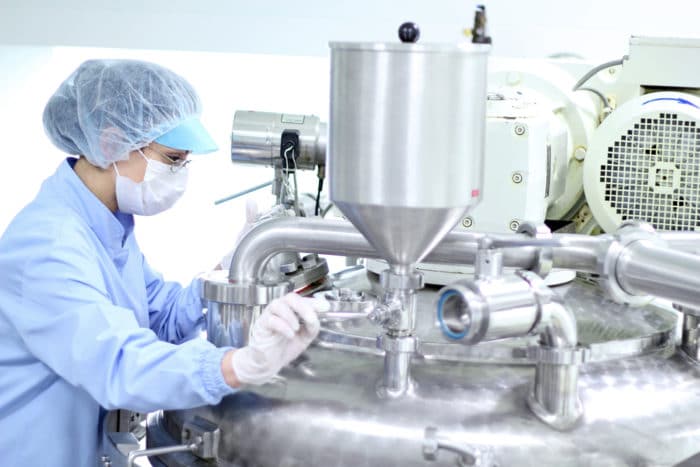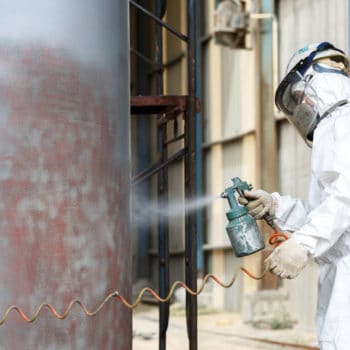Why We Love It
-
$59,070Potential Avg. Salary
-
-9.2%Job Growth Rate
-
Don't Take Work HomeCareer Attribute
-
Problem SolvingCareer Attribute
It is the job of a chemical plant operator to closely monitor and maintain plant equipment as well as hazardous chemicals in accordance with safety regulations. The long-term goal is to ensure that plant quality and its efficiency is improved.
Recommended Schools
What is a Chemical Plant Operator?
Duties
Chemical Plant Operators typically perform the following tasks on a daily basis:
- Make calibrations and adjustments to chemical systems under the specific directions of the Master Plant Operator or Plant Shift Supervisor.
- Undertake routine minor repairs, preventative maintenance and troubleshooting activities on equipment such as reviewing SCADA screens, gauges, equipment information plates and dials.
- Monitor plant equipment for any unusual odors or changes in visual appearance of substances like potentially hazardous chemicals, using flowmeters, panel lights and other indicators and report to the Shift Supervisor.
- Carefully comply with all safety policies and procedures to ensure safe and secure operations of assigned plant areas; which may include wearing all required personal protective equipment (PPE).
- Attend training sessions for updates on procedures or practices; coach and train others on plant operations.
Day In The Life
A chemical plant operator typically lives in the same community served by the plant, which results in a short commute. The main purpose of a chemical treatment operator’s job is to ensure that the plant functions safely and efficiently, without causing any harm to people in the area. Depending on your shift, morning or night, you will undertake rounds of the plant to assess each basin and piece of equipment and tanks, e.g. is the pump aligned correctly? Is there an electric short of some kind? Are the basins in working order?
The day will pass quickly as you use your superior observation skills to collect samples, run some lab tests and monitor chemical supplies. Keeping accurate records of the amount of chemicals in use per day is vital, as you are responsible for ensuring that there is enough in the inventory for smooth operations or else the plant would be shut down. Coordinating with the plant manager, you will keep track of project start dates for new projects and monthly costs for power consumption as well as chemicals usage.
Work Schedule
The work schedule is usually 40 hours per week at a chemical processing plant, which can occasionally include covering weekends and nights as per your shift. Due to the nature of work, you may have to wear protective clothing such as goggles, gloves, suits, etc.
Growth Of The Job
Not much change in the number of jobs is expected in the next few decades. However, new jobs and turnover from workers leaving for better opportunities will result in sufficient job openings. With the job requiring a flexible schedule for multiple shifts and occasional relocation to the site of work, there is high demand for chemical operators with experience. Some plant operators go on to managerial roles in the plant, especially if they have completed a degree in business administration or a related area. Some workers may move on to alternative careers as a chemical engineer, a petroleum pump systems operator or a gas pumping station operator.
Typical Employers
Chemical and petrochemical companies of all sizes are interested in hiring chemical plant operators for providing support to teams in the effective operation of chemical processes. Some examples include Aerotek, Dow Chemical Company, Eastman Chemical Company, Honeywell Chemical, Shell Norco, Bio-Rad Laboratories, and Vector Technical, Inc.
Recommended Schools
How To Become a Chemical Plant Operator
To begin your career as a chemical plant operator, you must possess a minimum of a high school diploma or its equivalent. The US Bureau of Labour Statistics specifies that most chemical plant operators progress to better roles through considerable work experience and technical trainings. Trainings on-the-job can include chemical handling, operating equipment controls, preparing records and handling chemicals in accordance with safety regulations.
With employers typically providing formal training and job growth opportunities, chemical plant technicians can take full advantage by enrolling for specialized trainingand academic programs that will make him or her successful. Many employees get ahead in their role by completing a community college program or an associate’s degree in relevant subject areas such as chemical technology or nuclear engineering. A chemical technology program for instance, gives you the skills required to know how to operate chemical plant equipment. You will receive a general education, which can include coursework in chemistry, computer applications and math.
Chemical Plant Operator Salary Data
We’ve provided you the following to learn more about this career. The salary and growth data on this page comes from recently published Bureau of Labor Statistics data while the recommendations and editorial content are based on our research.
National Anual Salary
Low Range
$46,760Average
$59,070High Range
$80,970National Hourly Wage
Low Range
$22/hrAverage
$28/hrHigh Range
$39/hrHow do Chemical Plant Operator salaries stack up to other jobs across the country? Based on the latest jobs data nationwide, Chemical Plant Operator's can make an average annual salary of $59,070, or $28 per hour. On the lower end, they can make $46,760 or $22 per hour, perhaps when just starting out or based on the state you live in.
Salary Rankings And Facts
#281 Nationally for All Careers
Above Average Salary Nationally
Programs and Degrees
Here are the most common degrees for becoming a Chemical Plant Operator. a is usually recommended and specifically a degree or coursework that prepares you for the particular field, see below.
Highest Education Among Chemical Plant Operators
- 0.5% Doctorate
- 0.6% Masters
- 11.6% Bachelors
- 11.7% Associates
- 32.3% College
- 38.1% High School
- 5.1% Less than High School
Job Growth Projections and Forecast
2014 Total Jobs
38,1002024 Est. Jobs
34,600Job Growth Rate
-9.2%Est. New Jobs
-3,500How does Chemical Plant Operator job growth stack up to other jobs across the country? By 2024, there will be a change of -3,500 jobs for a total of 34,600 people employed in the career nationwide. This is a -9.2% change in growth over the next ten years, giving the career a growth rate nationwide of Above Average.
Growth Rankings And Facts
#746 Nationally for All Careers
Above Avg. Growth Nationally
What Companies Employ The Most Chemical Plant Operators
| Industry | Current Jobs | New Jobs Needed | % Increase |
|---|---|---|---|
| Basic chemical manufacturing | 15,100 | -1,500 | -2% |
| Resin, synthetic rubber, and artificial synthetic fibers and filaments manufacturing | 7,200 | -900 | -1% |
| Pesticide, fertilizer, and other agricultural chemical manufacturing | 4,400 | -500 | -1% |














